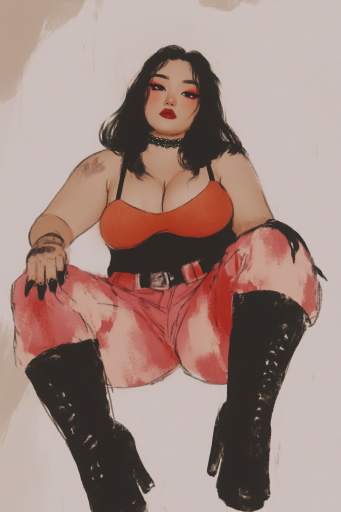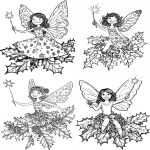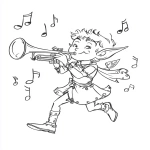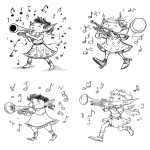Explore the Best AI Image Gallery

Painting with Pixels: The Future of AI Images in Marketing
As technology continues to evolve, artificial intelligence (AI) has started to play a pivotal role in various industries, including marketing. The advent of AI-generated images is challenging traditional methods of content creation and offers fresh opportunities for marketers to engage their audiences. This blog post explores the impact of AI-generated images on the creative industry, potential uses in marketing, ethical considerations, and future trends.
The Evolution of AI in Marketing
AI's integration into marketing is not a new phenomenon. However, the deployment of AI-generated images represents a significant leap forward. Companies are leveraging algorithms and machine learning to produce visual content that resonates with consumers. These AI systems are capable of analyzing user data and generating images tailored to specific audience preferences. This represents a shift from generic marketing material to highly personalized and engaging content.
Impact on the Creative Industry
The introduction of AI-generated images into marketing has fundamentally transformed the creative industry. Designers and marketers are now collaborating with AI tools to enhance their creative processes. Here are a few key impacts:
- Enhanced Creativity: By utilizing AI, marketers can experiment with innovative visuals that may not occur to human designers. AI can blend styles, colors, and themes in ways that push the boundaries of creativity.
- Efficiency: AI can significantly reduce the time required for image creation. What once took hours or days can be completed in a matter of minutes, allowing teams to allocate resources more effectively.
- Cost Reduction: The need for extensive, costly photoshoots is diminished, making high-quality imagery more accessible, especially for smaller businesses with limited budgets.
Potential Uses of AI Images in Marketing
The versatility of AI-generated images allows for a broad range of applications in marketing:
- Social Media Marketing: High-quality, eye-catching visuals are essential for grabbing attention on platforms like Instagram and Facebook. AI-generated images can produce unique content at scale.
- Product Visualization: Whether showcasing new products or creating advertisements, AI can generate realistic images that illustrate products in diverse settings.
- Brand Storytelling: Companies can use AI to create unique narratives through visual content that reflects their brand identity, helping to evoke emotions and build deeper connections with customers.
Ethical Considerations
While the benefits of AI-generated images in marketing are substantial, ethical considerations are rising prominently in discussions among industry professionals. Among the key concerns are:
- Authenticity: As AI creates images, the line between reality and simulation blurs. Marketers must ensure that the use of AI does not mislead consumers regarding product representations.
- Copyright Issues: Questions arise surrounding the ownership of AI-generated images. Who holds the rights—the software creator, the marketer, or the end-user? This landscape is still under legal scrutiny.
- Bias in AI: AI systems learn from existing data, and if that data is biased, the resulting images may perpetuate stereotypes or exclude certain demographics from representation.
Future Trends
The future potential of AI in marketing, particularly concerning image creation, looks promising:
- More Personalization: As algorithms become more sophisticated, personalized visual content will become increasingly targeted based on user behavior and preferences.
- Integration of AR/VR: AI-generated images may merge with augmented reality (AR) and virtual reality (VR) platforms, providing immersive experiences that captivate audiences.
- Collaboration between Creatives and AI: Instead of replacing human creativity, AI will likely act as a co-creator, helping marketers and designers brainstorm and explore endless possibilities.
Conclusion
The rise of AI-generated images represents a transformative moment in marketing, with significant implications for the creative industry. While its benefits are clear, navigating the ethical landscape will be crucial as businesses embrace this technology. Ultimately, as AI becomes increasingly integrated into marketing strategies, creativity and technology will continue to intertwine, shaping the future of visual communication.
](https://images.ai-img.art/thumbnails/150/ed631f35091268316da1950d8f24949cf71c41220d75ddecc89232e1c28f3653.webp)













](https://images.ai-img.art/thumbnails/150/fd852e87169bf2f63982b31f7f16a8fa335d75d9536fd48c2b87c7d4b035fa7c.webp)








](https://images.ai-img.art/thumbnails/150/56d08b81b5991eca46f50c80b41db4e9ac06c775cbbf5138ea0734d93390316a.webp)


](https://images.ai-img.art/thumbnails/150/e407417f3921a9491278afc6484ec26f3ae374d4543e1a56898e8bcb1e41a0da.webp)


















](https://images.ai-img.art/thumbnails/150/4dfe5499f7f4f9e5aa1613199c58710634f2cba5f57ac7e6717c1d56a9864e1a.webp)
](https://images.ai-img.art/thumbnails/150/baf01e7f997f5bc030aa10831575d8b879a4a6755830df4bcd3dcc93346ef1dd.webp)


